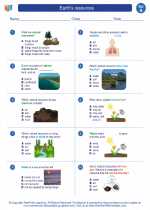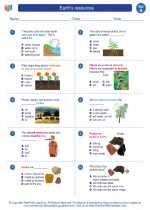Oceans
What are Oceans?
Oceans are large bodies of saltwater that cover about 71% of the Earth's surface. There are five main oceans: Pacific, Atlantic, Indian, Southern (or Antarctic), and Arctic. Oceans are home to a wide variety of marine life and play a crucial role in regulating the Earth's climate.
Ocean Zones
Oceans are divided into different zones based on their depth and distance from the shore. The main zones are the intertidal zone, neritic zone, oceanic zone, and benthic zone. Each zone has its own unique characteristics and supports different forms of marine life.
Ocean Currents
Ocean currents are continuous, directed movements of seawater generated by forces such as the wind, the Earth's rotation, and temperature and salinity differences. These currents play a critical role in distributing heat around the Earth and influencing climate patterns.
Marine Life
Oceans support a rich diversity of marine life, including fish, mammals, invertebrates, and microorganisms. The unique ecosystems within the oceans provide habitats for these organisms and contribute to the overall health of the planet.
Human Impact
Human activities such as pollution, overfishing, and climate change have had a significant impact on the world's oceans. It is important for us to understand the importance of oceans and take steps to protect and conserve these critical ecosystems.
Study Guide
Here are some key concepts to study about oceans:
- Identify the five main oceans and their locations on a world map.
- Explain the different ocean zones and the type of marine life found in each zone.
- Describe the factors that influence ocean currents and their role in regulating climate.
- Discuss the importance of oceans for biodiversity and the impact of human activities on marine ecosystems.
[Oceans] Related Worksheets and Study Guides:
.◂Science Worksheets and Study Guides First Grade. Earth's resources

 Worksheet/Answer key
Worksheet/Answer key
 Worksheet/Answer key
Worksheet/Answer key
 Worksheet/Answer key
Worksheet/Answer key
 Vocabulary/Answer key
Vocabulary/Answer key
 Vocabulary/Answer key
Vocabulary/Answer key
